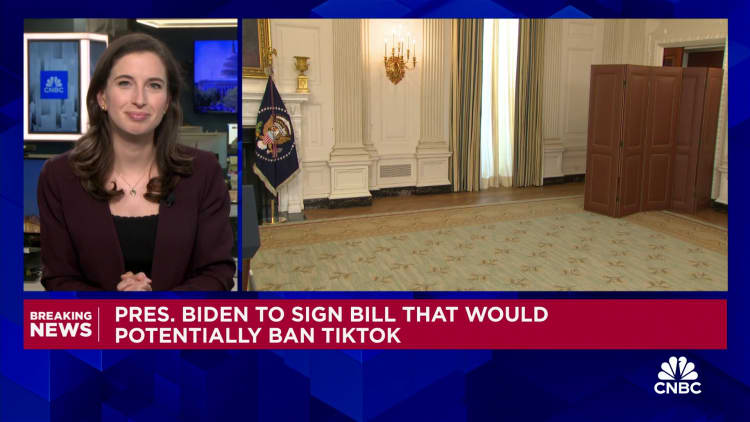Economists in the Biden administration are calling for more aggressive federal action to reduce costs for home buyers and renters, targeting one of the biggest economic challenges President Biden faces in his re-election bid.
Policy proposals in a White House report released Thursday include potentially aggressive federal intervention in local politics, often dictating where homes are built and who can live in them. The government is backing a plan to pressure cities and other communities to ease zoning restrictions that in many cases hinder the construction of affordable housing.
The recommendation is part of a new administration that delves deep into the decades-long housing crisis and hurts the president’s chances of a second term. The proposals contained in the president’s annual economic report could serve as a blueprint for a major housing push if Mr. Biden wins a second term.
The report includes a number of measures aimed at reducing the cost of renting or purchasing a home while encouraging local governments to change zoning laws to allow for the development of more affordable housing.
“It’s really hard to make a difference in this area, in this affordable housing space, without tackling land use regulations,” Jared Bernstein, chairman of the White House Council of Economic Advisers, said in an interview.
Mr. Bernstein added that administration officials believe many local leaders support a larger federal role in zoning reform — which can help override objections from local groups that oppose development. “I feel like we’re stepping through more open doors now than ever before,” he said.
The report is full of statistics that illustrate why housing has become an acute source of stress for American families and an electoral risk for Mr. Biden.
The administration has acknowledged that it has limited influence over local zoning regulations, which tend to dictate the design and density of homes in certain neighborhoods. Most of the president’s recommendations for expanding supply involve using the federal budget as a carrot to encourage local governments to allow more construction – including low-income housing and smaller single-family homes.
Such measures are unlikely to take effect this year because of looming elections and Republicans in control of the House of Representatives.
But the focus on housing and the passage of comprehensive measures to improve supply and affordability could serve as a blueprint for potentially bipartisan efforts on the issue if Mr. Biden wins re-election. It could also add momentum to a housing reform movement already well underway in state legislatures across the country.
The report documents how home prices have significantly outpaced wage growth for American families over the past decade. This has put condominiums out of reach of middle-income homebuyers and pushed lower-income renters to the brink of poverty.
A quarter of renters – around 12 million households – now spend more than half of their income on rent. Prices are so high that if a minimum wage worker were to work 45 hours a week for a month, the average rent would eat up every dollar he or she earned.
According to the report, this is due to a long-standing housing shortage. The lack of housing has become a rare point of contention between Democratic and Republican lawmakers.
The shortage is the result of decades of failure to build enough housing, a trend that worsened after the 2008 financial crisis. This is exacerbated by rising construction costs as well as the numerous local zoning and land use regulations that make building housing more difficult and expensive. These rules also limit what types of housing units can be built and where, for example, making it illegal to build apartments in single-family neighborhoods.
The lack of affordable housing particularly affects low-income families and couples who are just starting out. Millions of affordable apartments have virtually disappeared over the last decade, either due to rising rents or deterioration. At the same time, smaller and less expensive “starter homes” have a shrinking market share.
In recent years, a bipartisan group of lawmakers in both red and blue states have pushed through dozens of state laws to limit cities’ control over development. The report praised them and noted the government’s efforts to promote such reforms, including the Housing Action Plan released two years ago.
Mr. Biden has focused heavily on housing in recent weeks, partly to show voters that he is fighting to cut one of their biggest monthly costs. Privately, his aides expressed hope that the Federal Reserve’s rate cuts this year will lower mortgage rates and possibly home prices as a new supply of homes comes onto the market in response.
Publicly, Mr. Biden has taken the initiative, urging lawmakers to pass major federal investments in housing and tax credits for homebuyers.
“If inflation continues to fall — and it is predicted to — mortgage rates will fall as well, but I will not wait,” Mr. Biden said in Las Vegas on Tuesday. “I won’t wait.”
Source link
2024-03-21 09:05:37
www.nytimes.com







